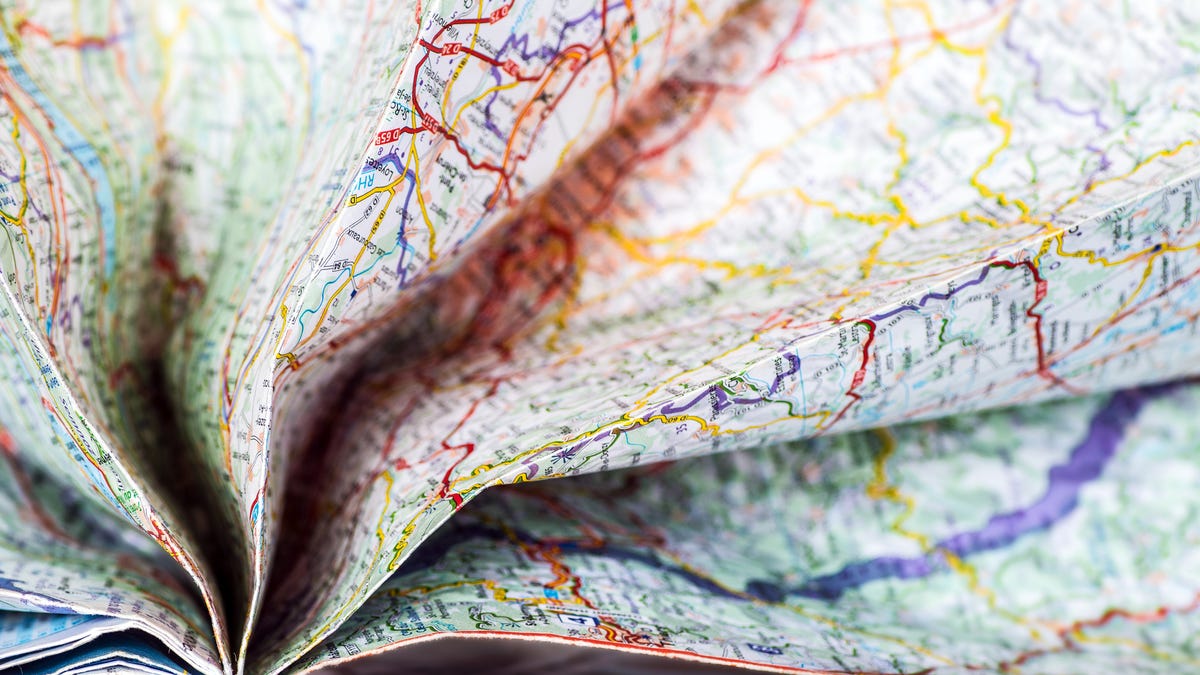Gregory_DUBUS/Getty ImagesOne of my children is playing a regional rival in soccer and the venue is in unfamiliar territory. Getting there on time on a weekday is challenging enough due to endless domestic chores. However, my recent ritual – born from a discovery that using navigational apps has been linked to higher rates of dementia – is making things worse. Early afternoon, I go into Google Maps and print out directions to the game, which include the steps I need to take, important landmarks, and a map of the route. When I first started this ritual, my child received it with incredulity, then rage, then sheer panic at the prospect of being late – and benched for the start of the game. As we head off, I hand the directions to him. They’re just for safety, though. We both try and guess the turns, exits, and landmarks without reading the directions, making sure to verify each step for accuracy. It’s a nice father-and-son game, actually, and quite empowering since it drills into you concrete knowledge of your physical world which is elusive when you’re following that blue digital arrow on a screen. I make the cardinal mistake of bringing up London taxi drivers. “Pops, we know,” says my child, brusquely. “You’ve told us about the London cabbie’s hippocampus about a million times. We get it.” I don’t blame the kid – for I am truly obsessed with the hippocampus. All roads lead to the hippocampus. The hippocampus is crucial for learning, memory formation, navigation, and mental mapping – and the unique ability to comprehend arbitrary linkages to things that artificial intelligence struggles with. A decline in human cognition can occur due to several things, one being the shrinking of the hippocampus. A recent study published by scientists in Neurology magazine involved accumulating data from 128 older adults over a 10-year period that analyzed cognition tests and brain scans. Unfortunately, while over 90% of Alzheimer’s research is devoted to the link between memory and Alzheimer’s, little research devotes attention to the relationship between spatial navigation and hippocampus size. Two scientists from the University of Texas at Dallas recently decided to explore this connection. Dr. May Yuan, a geographer and professor of geospatial science, began pondering the connection between the routes we follow every day and incidences of Alzheimer’s. To investigate this further, Yuan sought help from Dr. Kristen Kennedy, an associate professor of psychology in the University’s School of Behavioral of Brain Sciences. They used machine learning to establish linkages between Alzheimer’s patients and environmental complexity, finding that those in areas with low environmental complexity were more likely to develop Alzheimer’s. Another study found that increased GPS use correlated to a decline in spatial memory. Evolution has selected the most resilient parts of our anatomy for survival, but technology has also brought negative consequences. Inuit and aboriginal people cultivated navigational skills that are now being lost due to technology reliance. London cabbies undergo rigorous training to memorize routes, relying solely on their hippocampi. The researchers suggest a re-design of GPS systems may be necessary. In the meantime, I have ditched print-outs for my trusty road atlas and written directions.

